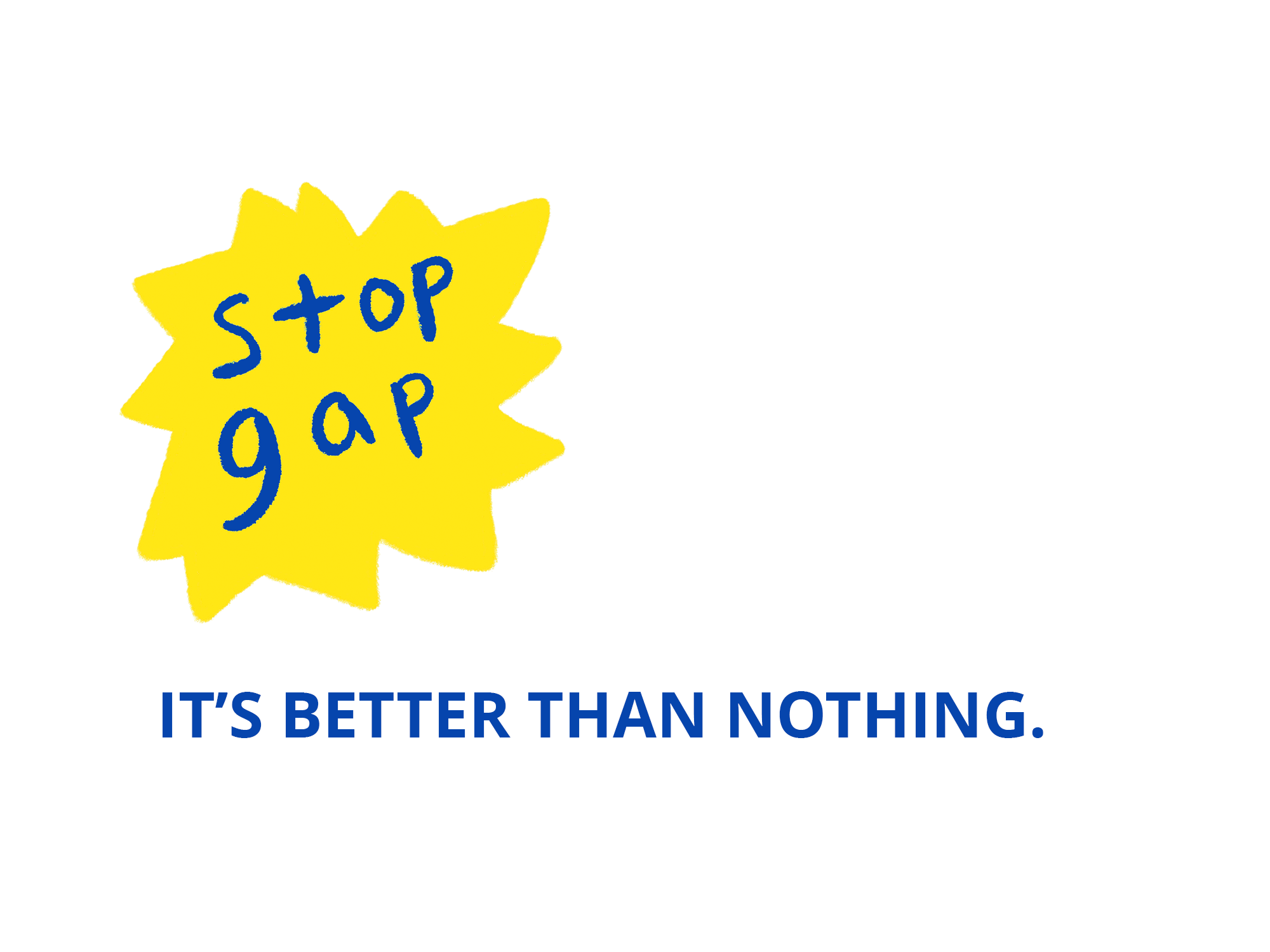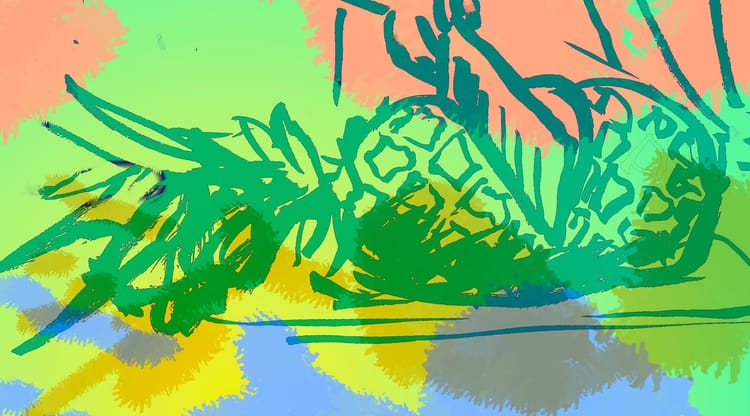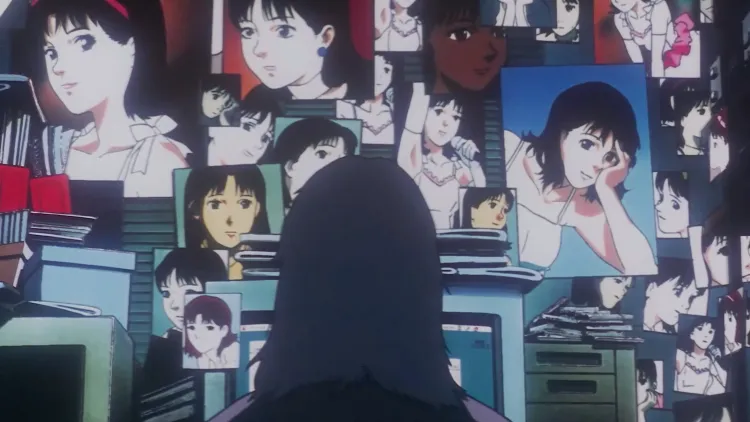Lesbian matricide is sterile! Heterosexual fratricide is generative! Jo and Danny on "Badlands" (1973).

Jo: Tum, tum-tum, tee tum, tum-tum, tee tum, tum-tum, tee-TUM, tum-TUM. Garbage man excellence.
Danny: I’ve since learned that Badlands was apparently originally released as part of a double bill with Blazing Saddles, and I’m very sorry to have missed that.
J: I don’t believe you.
D: Go to HELL. Here’s proof: “Leaning heavily into a scheme that marketed the film as a pulpy genre picture (which it most decidedly was not), Warner Brothers released BADLANDS as part of a double bill with Mel Brooks’ BLAZING SADDLES. The general release critics didn’t share the same view of Malick’s first feature as the festival critics did, and BADLANDS subsequently languished in box office oblivion.”
J: Good god. It was a Warner Bros. decision? It sounds like a critic had to see both if they wanted one? I mean, they’re mutually destructive movies. I guess there’s a lot of dust in both.
D: “You can see Blazing Saddles when you’ve finished all the Badlands that’s still on your plate.”
J: But it does emphasize the glorious fuckfest that was 1972-5 in American movie-making. And this double bill is like Emotional Manifest Destiny I: ironic and Emotional Manifest Destiny II: romantic.
D: It’s certainly in conversation with the Western! And now I wish Sissy Spacek and Gene Wilder had played opposite one another in something.
J: The irony-free eyes of Sissy Spacek are where Gene Wilder crawls when he can’t do it any more. I was talking yesterday with our buddy Charlotte Shane about Twilight, and how completely absent it is of reasons why Edward is into Bella, apart from her charming clumsiness. Edward is centuries old and Bella is a child with a lot of time on her hands, but the story runs on the rails of love-at-first-sight.
It brought me to think of the love-at-first-sight tragedy, which I do think is a good basic format for a story. Romeo and Juliet is famously watchable. But none previously had such a very flat background to it, I don’t think, or those authentic-emotion eyeballs in play. Badlands is an exemplar but quite distinct from any other version of the tale I’ve consumed.
D: Yeah, I tend to be really mixed on “murderous couples” movies – I hate True Romance and Natural Born Killers, I like Thelma & Louise and I love Sightseers. Badlands is exquisite, and I love it, but I don’t love Bonnie & Clyde, which Badlands is supposed to be loosely inspired by in addition to the real-life Starkweather killings.
J: Literally reverse those feelings and they’re mine, wow. I think it’s good when a movie punishes the lovers and everyone around them. It’s a brutal genre and I like it when there’s a little didacticism snuck in towards the end: Not like how Thelma and Louise go out on their own terms, more like the ending of You Only Live Once (1937). Doom? They’re kind of like hardboiled betrayal stories full of death, but the betrayal is that the world hates lovers.
D: That’s a fair cop! I like (or dislike) the movies as I like or dislike the couples killing everybody in them, I suppose. And I do prefer the dreamy/childlike murderous types (Sightseers/Badlands) to the manic/sadistic types (NBK/True Romance). I love how Kit and Holly talk to each other like three-year-olds making friends on the playground: “I’m Kit.” “Your hair’s red.” “I’ve got a headache.” “This dog is dead.” “My last name sounds like ‘druthers.’”
J: So if we played Heavenly Creatures I would get to be Kate Winslet. That came out more lascivious than I meant. That’s a good love story because of the weird power dynamic, which is a feature of the best random upstairs/downstairs love matches. In Badlands, we have an outdoor man, Martin Sheen, who picks up the household waste of an indoor girl.
D: Yes, and Heavenly Creatures’ killers (I mean in the movie rather than the real-life pair it was based on) can’t imagine murder extending any further than the household. They kill her mother, and that’s it; the death of ideas. But Sissy Spacek’s mother in Badlands is already dead, and so killing her father opens up a brand-new world of possible killings, at least for a while. Lesbian matricide is sterile! Heterosexual fratricide is generative!
It’s difficult to overstate how remarkable Spacek and Sheen are as a couple – they’ve both got those freaky blue pop-eyes as big and as stupid as the whole world put together, and they hardly ever quarrel, and they do nothing but “Yes, and” each other. Or, like, their quarrels sound like this: “We had our bad moments, like any couple. Kit accused me of only being along for the ride, while at times I wished he’d fall in the river and drown, so I could watch….Mostly, though, we got along fine and stayed in love.” GORGEOUS.
There’s very little malice behind the killings – I think Malick said in an early interview that Kit’s “so desensitized that he regards the gun as a kind of magic wand that eliminates small nuisances,” which I think is really true and really lovely.
He does rescue Holly from the indoors; you don’t get more outdoors than they do, unless you’re the Swiss Family Robinson, living in a treehouse and catching chickens. I’ll always have a softer spot for murder-couples that live in the trees than the type who live out of their cars. I don’t like car-killers as much as I like pedestrian-killers, I think (Sightseers again being the exception).
Man, that scene where they’re dancing the Stroll together, to “Love is Strange” in the woods, just after she’s carried all that wood five miles on her shoulder – it makes you mad they ever used that song in Dirty Dancing. Which is really saying something, because I like Dirty Dancing.
J: So desensitized that he regards the gun as a kind of magic wand that eliminates small nuisances. That’s exactly the baby-mind of Badlands. You know how kids sometimes kill each other by accident because in cartoons you bop somebody on the head with a hammer and they pop right up in a tizzy of stars? The treehouse is a key ingredient of the thing as well. It’s Robinson Crusoe but an old photograph from the ‘70s that’s been bleached in the sun, so all the foliage has gone pale and yellow; the memory of the fantasy of running away. One of my clearest childhood memories is of hiding in the school sports field near my house, behind a bush. It got dark and my dad came and looked for me, but when he called to me I ignored him. Then he gave up and turned around, and that’s the moment that I remember: The panic of realizing that you can absolutely get yourself into an irreversible long-term pickle through sheer moment-to-moment stubbornness. I wasn’t scared of being left, I don’t think, because I could still see my house. I was kind of thrilled? But then it got too dark to read my book and I got hungry. Add some Schulwerk over the top and I can imagine my own past through the Malickian haze, too. That’s what the treehouse makes me think of. Do you get what I mean about Badlands feeling like the memory of uncomplicated desire for love and escape rather than the thing itself? Robinson Crusoe is a bit like that too.
D: Yes, absolutely I get that – especially because I think it’s a very open-ended question whether Holly loves Kit at all. She’s sometimes curious about him, and she’s very aware of his limits and needs, but I’m not really sure they understand love or commitment in anything like the same way. They get along very well until they part ways decisively, which I like very much. If anything, I think they remind me of John and Pearl from The Night of the Hunter. You’ve seen it, right?
J: Love it, I’m a Mitchumhead.
D: I should have known! I really feel like Badlands is a lovely dream-remix of Night of the Hunter, where Kit is both John and Preacher Powell, and Holly is both Pearl and her mother Willa – as placid as Willa dead in the lake, as stubborn as Pearl insisting she’s going to tell Reverend Powell all their family secrets. She’s always so dazed – I mean Spacek as Holly – whenever Kit informs her he’s killed someone. She asks, “Are you going to be okay?” of her father when he’s been shot twice in the gut; she asks, “Is he upset?” when Kit says “I shot [Cato] in the stomach” – it’s totally disarming and totally beautiful. She’s so empty! I love her!
J: Twirling her majorette thing in the street, twirling and twirling. So it’s Night of the Hunter through the haze…I like it. Sheen has a Mitchum quality for sure. I love what you say about Holly’s dazedness. The way Spacek plays this dazedness makes her so strong in Badlands—maybe Manson-girl-amoral strong but it’s also Book of Genesis strong, the immortal evil trailing into Eden in her red curly hair. Different from Carrie-dazed. It’s a very early morning movie, too, I guess because of the first few minutes and the garbage collection timing, but she seems also like somebody who just woke up.
D: Yes! She’s simple and strong, like the alphabet or an oak tree.
J: Right, the murder girl as a natural phenomenon. And Kit, too: I love that bit where Holly says that Kit accuses her of “being along for the ride,” as if the treehouse’s intricate construction is so cool (it is) that it would itself be enough motivation to leave the world behind, it has nothing to do with him.
D: Yes – and the end of their run is so remarkable, especially for this genre. She just gets tired of him, and she tells him so. And he gets mad for a minute, and says he doesn’t understand her, and then he makes this totally improbably Affair-To-Remember-style promise, where if she changes her mind, she should meet him at the Grand Coulee Dam on New Year’s Day in 1964, and then he drives off and she never sees him again. “He dreaded the idea of being shot down alone, he said, without a girl to scream out his name,” she rattles off in that fantastic blasé voiceover. She’s such a fun example of Bella Swan taken to her logical conclusion: empty, loves love, could eat the world and the moon, faithless.
J: Do you buy the theory that she enacts the whole thing out of revenge against her father? I think the major evidence for that is how undermine-y she is.
D: I’m not even really sure you could call that a theory, to be honest! She clearly is very angry with her father, and if she’s not precisely willing to run off with Kit, we certainly have a straightforward example of what she does when she’s no longer willing to be with him. I don’t think she’s engineering his own behavior any more than he engineers hers – which is to say, a little bit, some of the time, but mostly I think of the two of them as being very lonely together, and having remarkably little effect on one another. He does what he wants, and she does what she wants, for the most part, and then they split. It’s a great hangout movie; I don’t think I can buy any reading of the movie that involves some Machiavellian subterfuge on her part. She’s a straight shooter.
Jo: I think you’re right at one level. But to take the revenge theory seriously for a moment, it’s not about her conscious intentions. It proposes, I suppose, Badlands as an adventure story in which Holly is the true protagonist, since she’s in charge of these kind of ironical jokes about Kit all the time. She leaves her father’s rubbish house, then she blows through Kit’s life force (she feels at the end like being with him is “like when you’re sitting there and all the water’s run out of the bathtub”), and once she’s done with him he falls off the page of her life, too. In this view of things Kit is sort of imaginary and interchangeable, which I do think matches up with how typed he is all the time; the James Dean outfit, his cute poses, even the stage-y murders.
D: Yes, he’s such a fantasy boyfriend of the type you would imagine for yourself as a seven-year-old or something: “And he looks like the only celebrity I can think of, and he just kills everybody!”
J: “And then he got his head chopped off and I lived happily ever after.” He very much absorbs the punishment of the game so she can wander off.
D: Yes! And the second she leaves, he gives up; he enters her life in a whirlwind of violence but once she stops playing with him, all his strings are cut. He’s passed out of the realm of humanity and become an invisible friend, who’s only real when she pays attention to him. Not for nothing but almost the last thing anyone says to him as the arresting deputy: “I’ll kiss your ass if he don’t look like James Dean,” which is the sort of thing cops might say in dreams but I suspect less often in real life. He’s Paul Bunyan now!
J: The purest form of revenge on the world for the suffering of being born a majorette: A boyfriend who really doesn’t exist when you’re not looking at him.
D: And when he sees her next, he’s as good as his word (right before shooting her father, he’d promised that he’d only look after her as long as she wanted, and if she ever thought she could do better than him, “That’d be okay”):
“Don’t worry, I’m going to get you off these charges…There’s a whole lot of other boys out there. You’re going to have a lot of fun.”
I should revise my earlier opinion: I don’t think we’re meant to think Holly has consciously manipulated Kit to kill people against his own inclination, but certainly structurally he acts more often in her service than vice versa, even though she tells people that “He says frog, I say jump.” He gets her out of her father’s home, he bows out gracefully when she’s ready to grow up and leave her first love behind, and he reassures her that the world is full of new love interests and that he’s not going to hold their past against her.
J: He rescued her from the tower. There’s a very passive revenge plot going on if there is one; definitely chivalric but weird, like Gawain, some humiliation kink don’t look at me weave my tapestry medieval type dynamic. There are so many catchphrases these days for passive control: topping from the bottom, I guess, but also passive aggression, narcissistic manipulation, victim complex, main character syndrome, that kind of thing. It relates to a phrase like “male gaze,” something happening inside you while being observed by other people. Sissy Spacek acts like she knows people are looking at her really, really well.
D: Yes! To that end, I adore the throwaway lines she uses to wrap up her own side of the story: “Myself, I got off with probation and a lot of nasty looks. Later I married the son of the lawyer who defended me.” If you can’t be with the one you love…
J: …love the one whose dad is sitting next to you.




Comments ()